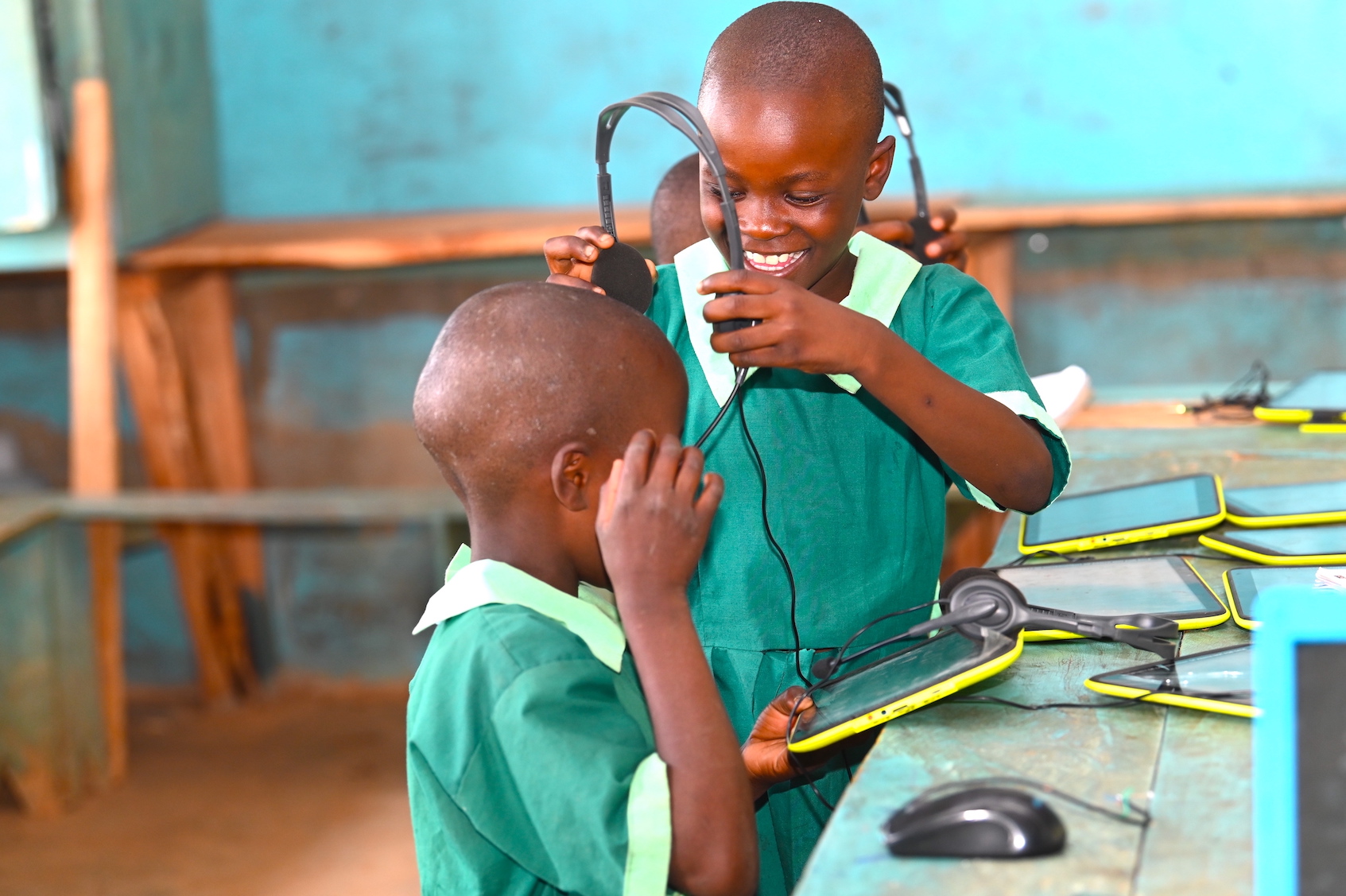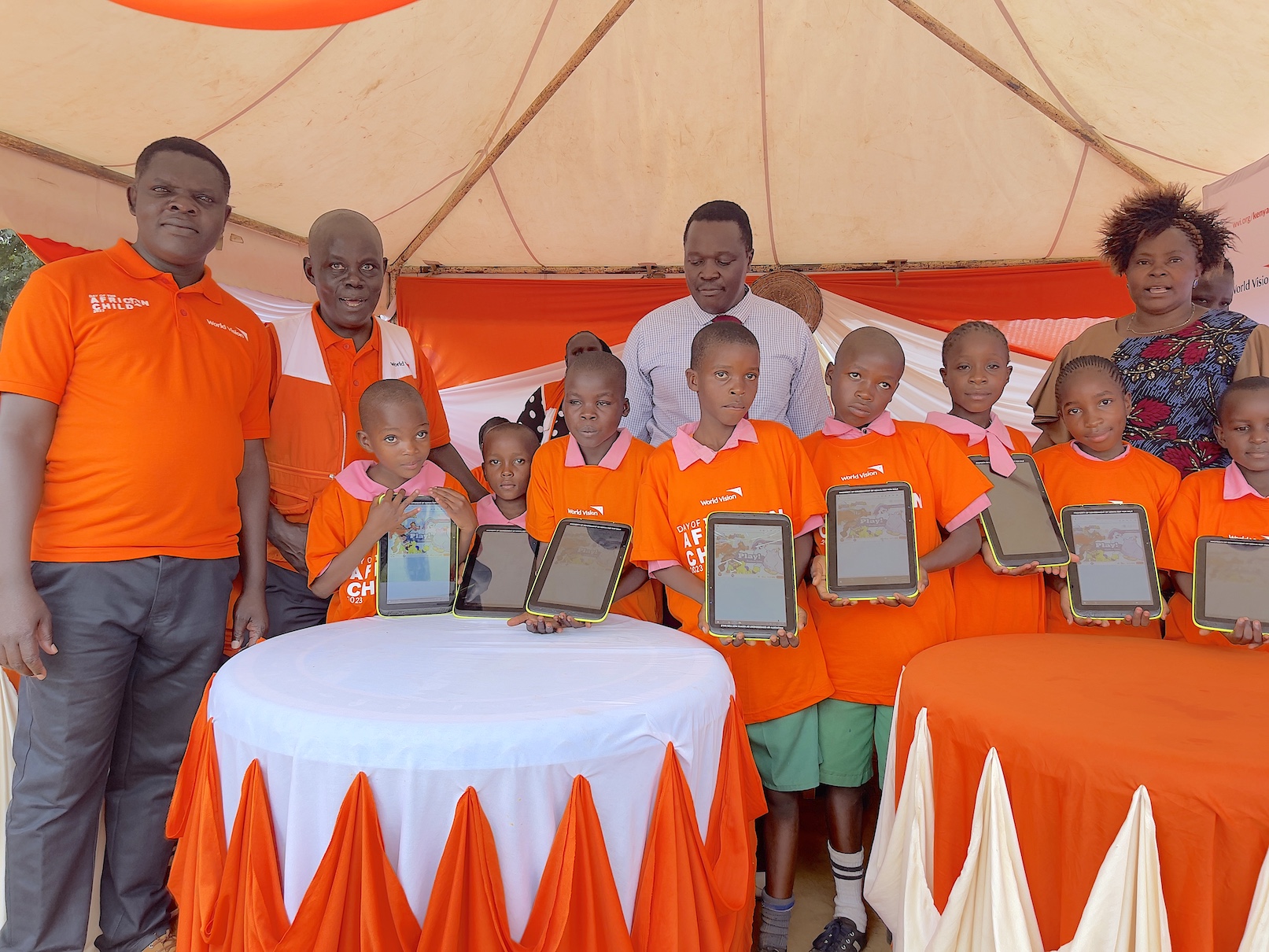Digital literacy project improves learning in schools

By Sarah Ooko, World Vision Senior Communications & Media Specialist, Kenya
Digital technologies provide opportunities for children to enjoy numerous rights, including the right to education, which is fundamental to the improved well-being of children.
Through its digital literacy programme, World Vision in collaboration with Concordia and Wilfrid Laurier universities (Canada), as well as the Aga Khan Schools, has been supporting children in rural and marginalised communities to access quality education and learning material in Kenya.
In Western Kenya, the organisation has worked hand in hand with the government to provide computer laptops and tablets to schools.
These child-friendly computers contain a specialised software provided by World Vision that is known as the Learning Tool Kit (ABRA Software). It has helped to boost the literacy levels of children in the area.

Eleven, year old Edah, a pupil in one of the schools that have benefitted from the ABRA software notes that she enjoys the e-learning resources because they teach subjects in an interesting, engaging and fun manner.
"There are nice pictures and videos that I love watching. I also love reading the storybooks that have helped me to improve in English and learn how to spell and pronounce words correctly," she says.

Through the Learning Tool Kit, pupils are able to access a wide variety of electronic text books for various subjects as well as story books that have made learning materials to be accessible to all children. Previously, such books were hard to come by, as most parents could not afford them.
Aside from that, the kit makes it possible for children to access learning tutorials that teach them how to read, calculate sums and pronounce words correctly.

This innovative digital learning platform has gone a long way in improving the performance of children as well as school retention and completion rates, as pupils find it interesting and fun.
For the effective rollout of the digital literacy initiative in schools, World Vision first built the capacity of teachers and equipped them with skills, which enabled them to effectively integrate Information Communication and Technology (ICT) in learning.

These teachers have become digital learning champions in their respective schools and have gone further to train more and more teachers.
Aside from providing the digital technologies, World Vision also sensitises children on internet safety so as to protect them from online child abuse and exploitation.

The organisation is also working with the government, among other partners to advocate for effective policies and legal frameworks that will ensure that children’s rights are upheld at all times, even when they are online.
World Vision is also keen on collaborating with the government to bridge the digital divide between children in urban and rural areas, as well as those from richer and poorer families so as to ensure that all children can benefit from technological innovations.
This work was supported by the Global Partnership for Education Knowledge and Innovation Exchange, a joint endeavour with the International Development Research Centre, Canada.